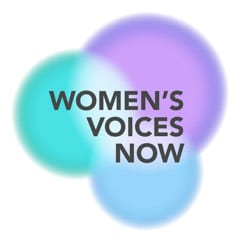Women's Voices Now - Call for Submissions:
Women Bought and Sold: Voices United Against the Violence
$30,000 in CASH PRIZES
Categories: Documentary, Fiction, Experimental, and Student.
Deadlines: Submissions are OPEN until December 31, 2013. Late submissions accepted until January 31, 2014.
Categories: Documentary, Fiction, Experimental, and Student.
Deadlines: Submissions are OPEN until December 31, 2013. Late submissions accepted until January 31, 2014.
Women's Voices Now (WVN), a Los Angeles-based not-for-profit social enterprise is calling for film submissions for Women Bought and Sold: Voices United Against the Violence. The Festival is open to filmmakers of all genders, nationalities, and faiths. [For more detail on the subject of the film submission, see below.]
Subject Matter: Women Bought and Sold: Voices United Against the Violence aims to amplify the voices of women of all faiths and backgrounds living in Muslim-majority societies around the globe. The subject matter of the films must be pertinent to the scope of the Festival: (i) focus on the issues of sex trafficking, slavery, domestic servitude, forced marriage, and sexual harassment; portray both the plight and the relentless struggle of exploited women; display the role of men and women in Muslim-majority societies in eradicating such injustices; and develop the network committed to achieving justice and equality; (ii) amplify the voices of women living in Muslim- majority societies and Muslim women living as minorities around the globe; these women's struggles, the challenges they face, the solutions that have been identified, and the success stories that have resulted.
Submission: The Festival accepts submissions from both amateur and professional filmmakers. Pursuant to WVN's goal of reaching and educating people around the world, WVN requests that films be made available for viewing online. For submission guidelines and application forms, please visit the WVN Film Festival page on our website: http://womensvoicesnow.org/submit- film.
Please carefully review the rules and regulations for each film category before submitting your film.
If you have any questions, please contact us via e-mail:
WVNfilmfestival2014@womensvoicesnow.org.
Prizes, Connections, and Gratitude: Women’s Voices Now will coordinate cash prizes to be awarded to the 1st, 2nd, 3rd, and honorable mention winners in each film category based on the decisions of our panel of judges. We also hope that at the Festival events we intend to coordinate that you will connect with others who share your support and work for pro-women voices.
Support: WVN is a not-for-profit organization. Please also consider making a donation to our work by visiting our Donations page. Support our work by following us on Facebook and Twitter, and sign up for our newsletter and monthly publication, The WVoice.
Contact Information:
WVNfilmfestival2014@womensvoicesnow.org
www.womensvoicesnow.org














 Qadar Tahiri, Khan-e-Tarikh(The House of History), 1996. Courtesy Afghan Films
Qadar Tahiri, Khan-e-Tarikh(The House of History), 1996. Courtesy Afghan Films Barmak Akram, Kabuli Kid, 2009
Barmak Akram, Kabuli Kid, 2009 Latif Ahmadi, Akhtar Maskara(Akhtar the Joker), 1980. Courtesy of Afghan Films
Latif Ahmadi, Akhtar Maskara(Akhtar the Joker), 1980. Courtesy of Afghan Films Toryalai Shafaq, Mujasemaha Mekhandan (The Sculptures Are Laughing), 1976. Courtesy of Afghan Films
Toryalai Shafaq, Mujasemaha Mekhandan (The Sculptures Are Laughing), 1976. Courtesy of Afghan Films